When it comes from the garden and nature itself, sugar can be a very good thing. It’s a source of energy and tastes darn delicious. And yet, like everything, it can be problematic when over-consumed—which is often the case with processed sugar. Thankfully, there are many other wonderful natural sweeteners for your sweet tooth.
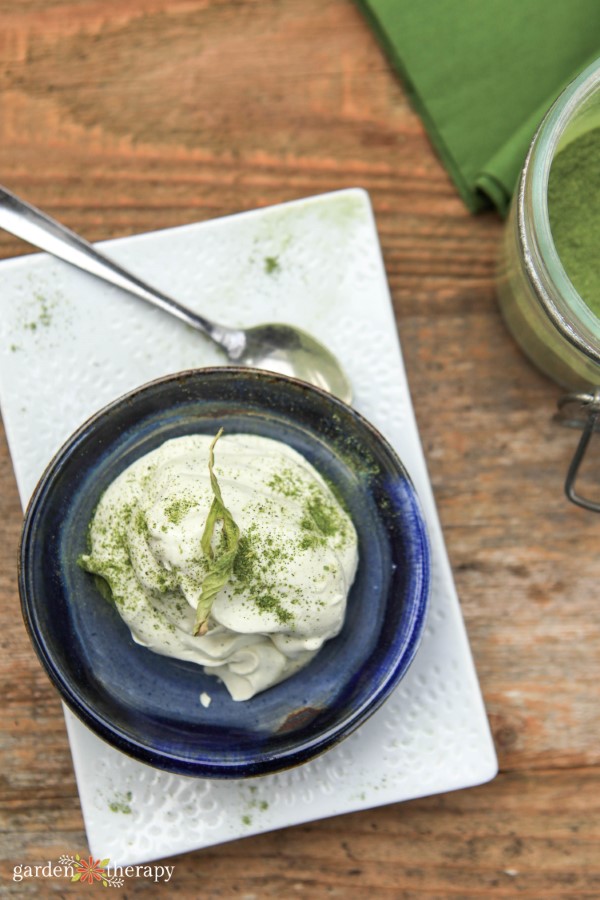
I’ve been going back and forth on this article about natural sweeteners for quite a while. The idea for this one was originally written not long after I spoke at the Epcot Flower and Garden Festival in 2017. So I’ve been sitting on natural sweeteners for a while!
On display, they had a sweet garden showing a few plants that produce natural sugar. Really, it only had a few plants in it: sugarcane, agave, and stevia. But ever since, it has made me think much more about all the naturally sweet foods and herbs that grace our plates.
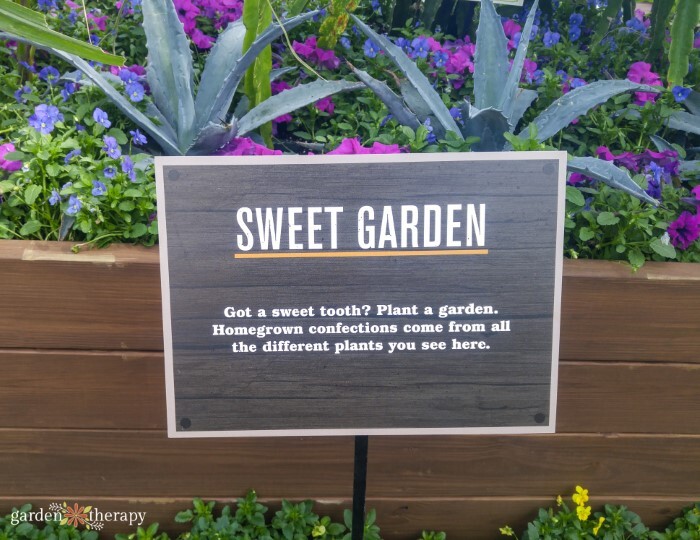
My Relationship With Sugar
I have a bit of a contentious relationship with sugar, which you can read about in my article on growing and using stevia. I always had a bit of a sweet tooth. But after I had my child, my hormones got all messed up. Soon, I started to trend toward insulin resistance. Luckily, I could quickly reverse those hormonal changes by cutting out all the sugar in my diet.
Overall, it made me curious about the natural sugars that sweeten our foods. There’s a reason we’re drawn to sweet foods—it only becomes problematic when we overconsume too much sugar and don’t expand the energy to burn it immediately.
I’m certainly not one to just say no to desserts. But with all my food, I like to try to find the least processed options. And I find many of the confections with processed sugar are too sweet and don’t make me feel good.
On the other hand, fruit that ripens in the sun, vegetables that are sweetened because they’ve been touched by frost, fresh honey, and maple syrup are all delicious natural sources of sugar meant to be enjoyed.
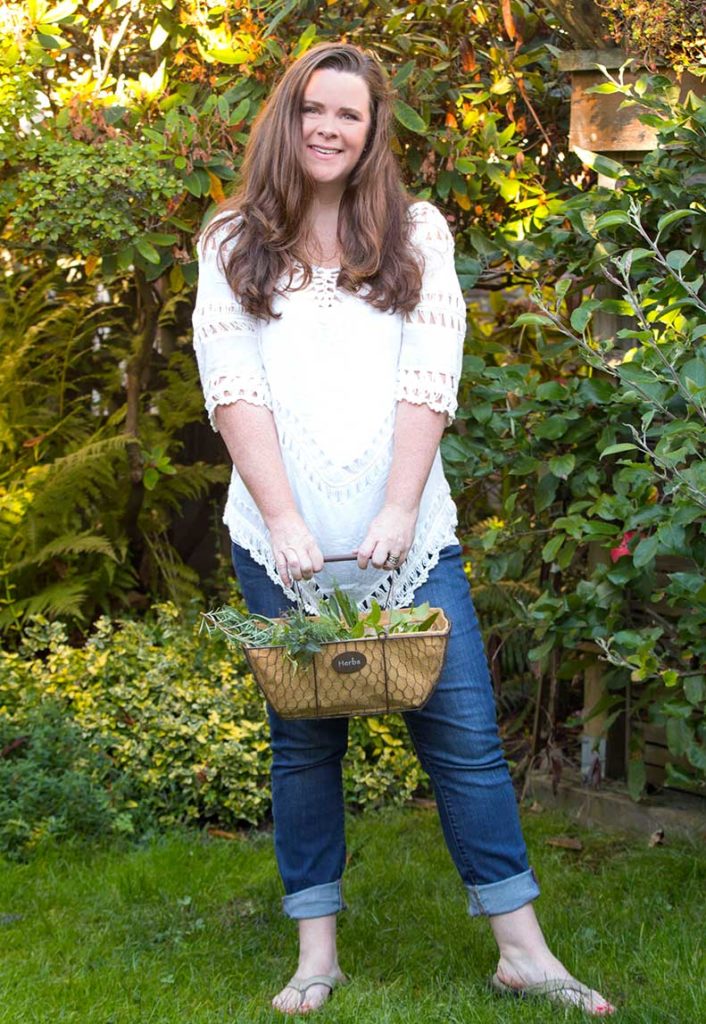
Before You Look For a Natural Sweetener….
Just because sugar is marked as organic or natural doesn’t mean that overconsumption will not influence our bodies. Sugars in any form are still simple carbohydrates meant to give us quick and fast energy.
If you’re looking to cut out sugar from your diet and that’s where sugar alternatives come in. There are very few sugar alternatives that I feel comfortable consuming because most are some sort of isolated sugar, alcohol, or sweet lab-created powder that doesn’t resemble what I think of as sugars.
But I do really love naturally sweet herbs like stevia and licorice. They add a lot more than just sweetness to a recipe. They both add flavour and have medicinal properties. Stevia is my absolute favourite and I wrote a lot more about it in this post.
But as for the other sugars that come from nature, here are some wonderful natural sources of sweetness to get to know and try.
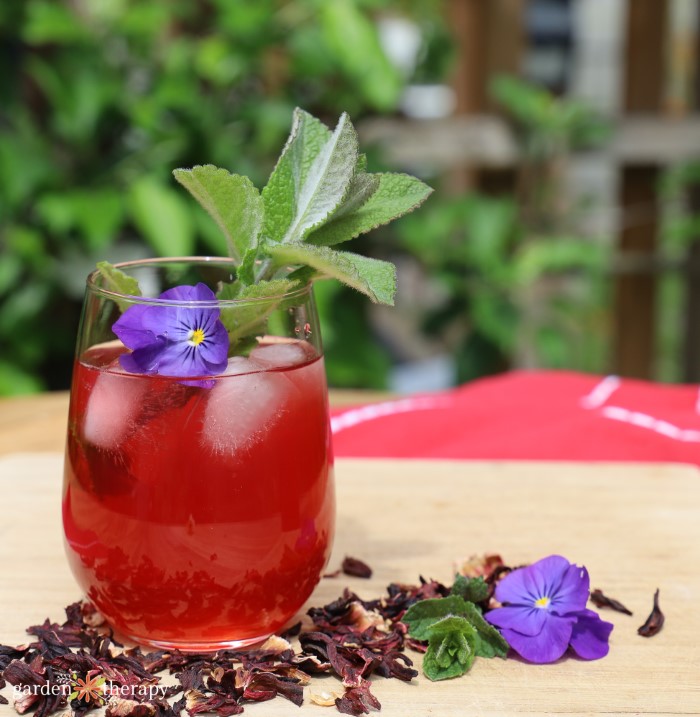
15+ Natural Sweeteners from the Garden
Let’s dive in, shall we? Whether you opt to grow these yourself, buy them, or simply want to learn, here are the 15 natural sweeteners that come straight from the garden.
Sugar Cane
Refined white sugar comes from sugar cane, but there are also sugar cane products that are less artificially processed and are better for you.
Sugar cane syrup is a sweetener made from the juice of the sugar cane, and molasses is a thicker, richer version of the same thing that has been boiled down multiple times to get a thick consistency.
Fruit and Vegetables
Of course, plenty of fruit and veggies can be considered sweet. These are the sweetest of the crop, and how they can be used.
Corn
Corn syrup is often used as a sweetener and is added to many processed products like sweets and sodas. Although this is a natural product extracted from corn, it is very high in fructose, almost always comes from genetically modified corn, and is widely considered worse for your health than refined sugar.
Beet
Beet sugar is often used as an alternative to sugar, but all commercially produced beet sugar comes from GMO sugar beets.
However, you can use your own organic garden beets as a sweetener by grating them and adding them to recipes. They are not extremely sweet but will add a touch of sweetness and an earthy flavour to your favourite dishes.
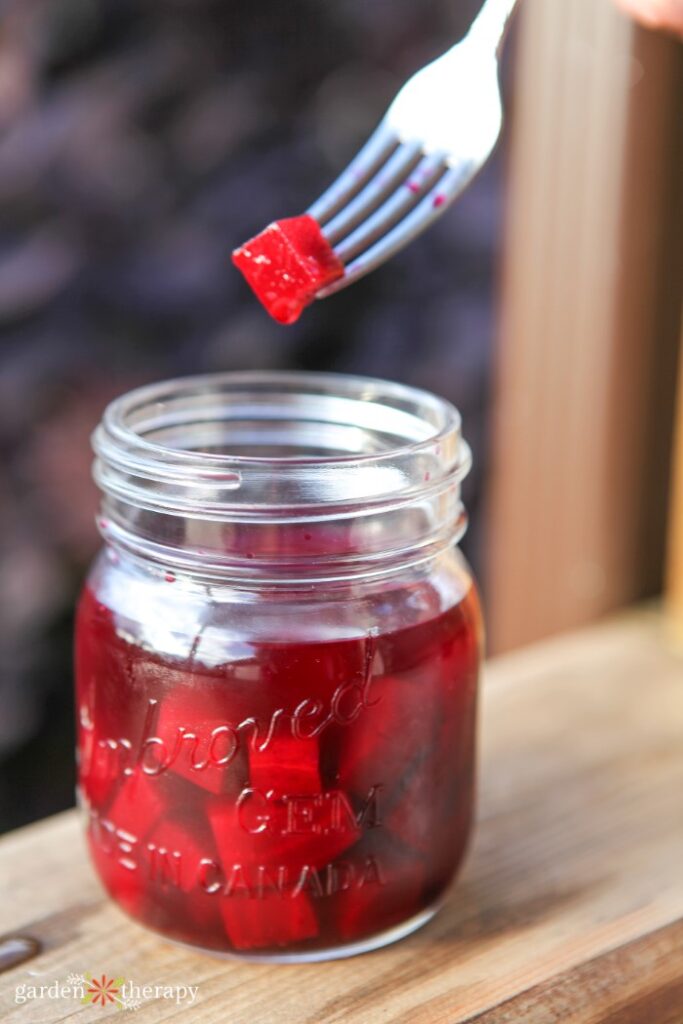
Coconut
Coconut sugar is made from the coconut tree’s sap. It has a similar sweetness level to refined white sugar, so you can use the same amount of coconut sugar as regular sugar if you want to substitute it in a recipe.
Coconut sugar tastes richer than white sugar, similar to brown sugar and molasses.
Fruit
All sorts of common fruits are great natural sweeteners. Use dried and chopped dates, plums, apricots and more to sweeten cookies, cakes, brownies, granola, and bread.
You can also make your own fruit syrup to add to recipes by cooking various fruit juices down until the liquid thickens.

Agave
Agave is a type of cactus. You may know it as an ingredient in tequila, but the plant’s nectar is often harvested and concentrated into a syrup as a vegan alternative to honey. It is practical for cold drinks like iced tea and cocktails because it dissolves easily without heat.
However, according to many experts, agave has a high fructose concentration. Research has linked high-fructose sweeteners to obesity, diabetes, high triglycerides (blood fats), metabolic syndrome, and fatty liver.
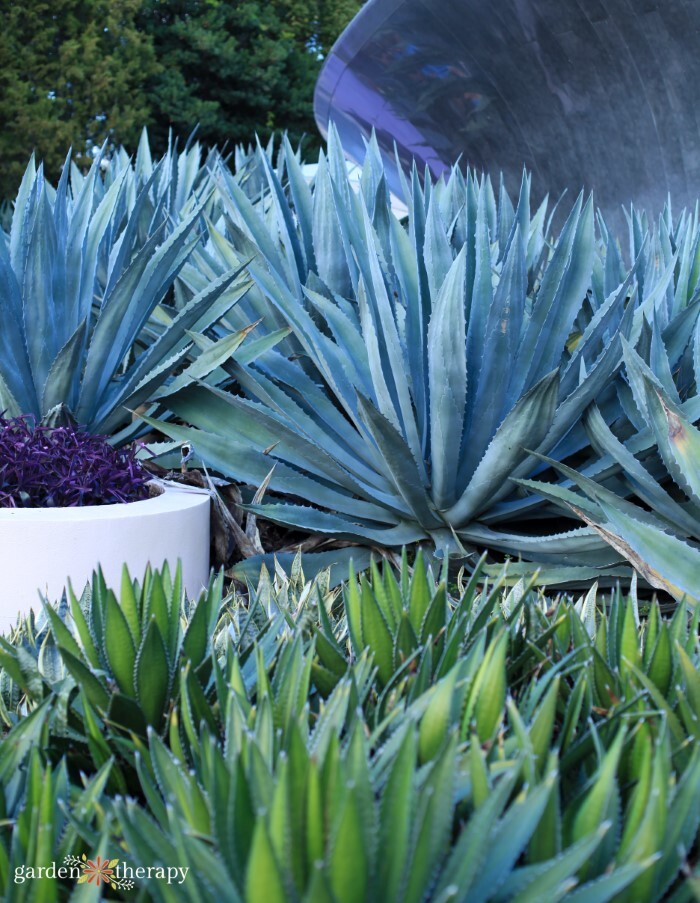
Honey
Honey is the only animal product on this list and is not for those who adhere to a strict vegan diet or for children under 1-year-old. It comes in many different flavours depending on what plant the bees pollinated and can have a very light flavour or a deep, rich taste.
You can find honey that has gone through various levels of processing, from raw to pasteurized. That being said, honey always goes through less artificial processing than refined sugar. It is also a natural anti-bacterial and anti-inflammatory that can help soothe sore throats and kill germs.
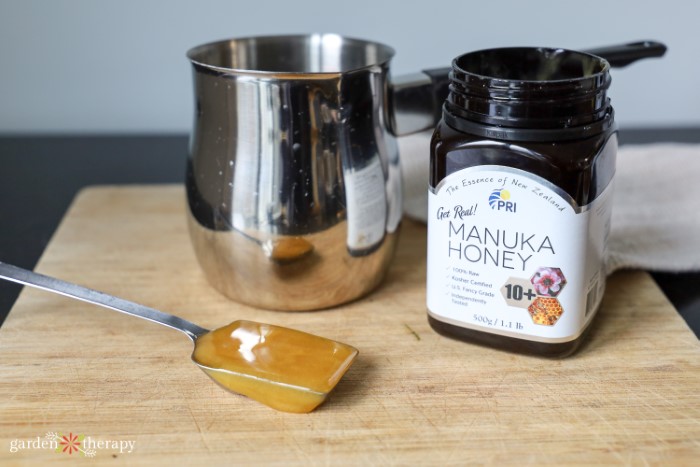
Tree Sap
Another garden-friendly natural sweetener is tree sap. Here are the most popular:
Maple
Maple sap’s earthy sweetness is excellent for sweetening more than just pancakes! Add it to sweets and baked goods of all kinds, beverages, and even meat dishes.
Birch
Birch sap has a caramel taste with a bit of spice to it. It is most commonly used as a sweetener for savoury dishes and in glazes, dressings, and sauces.
Sugar Pine
Sugar pine sap is sweet with a rich nutty flavour. Add it to sweet or savoury recipes for a deep, earthy sweetness.
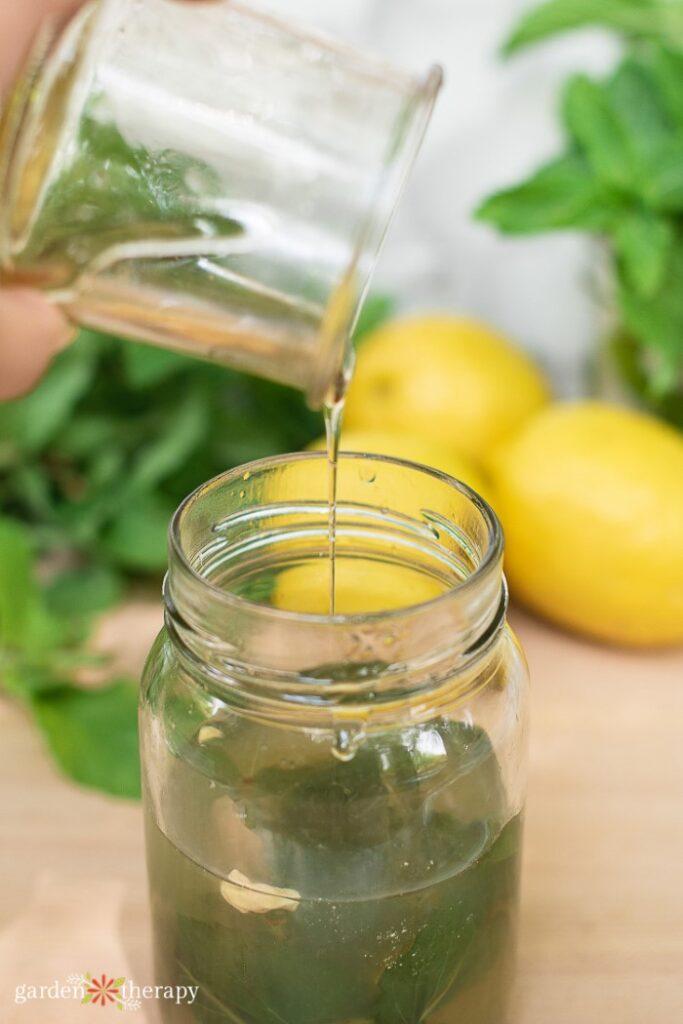
Monk Fruit
Monk fruit is a small melon native to South East Asia. It contains antioxidants called mogrosides (which cannot be found anywhere else) which give it its sweet flavour.
Monk fruit is significantly sweeter than sugar, so you don’t need a lot of it. There are also some additional benefits potentially, as it allegedly boosts immunity and aids digestion.
Sorghum Grass
Sorghum syrup is a natural sweetener extracted from sorghum bicolour grasses native to Africa. The plant grows more like sugar, with canes that reach six feet in height. Sorghum syrup tastes similar to sugar cane but with a mildly sour molasses flavour.
Herbs
Stevia
(Stevia rebaudiana)
A very popular sugar substitute, stevia has an intense sweetness and its own unique herby flavour. While marketed as a sugar substitute, it won’t taste anything alike, so people often twist their noses up at pure stevia.
The reality is, stevia is a delicious very very sweet herb that is amazing when you appreciate it for its original taste. Stevia disrupts biofilm, meaning it helps to uncover the hiding places of bad gut bacteria so the good bacteria can flourish.
Just remember that the powdered stevia you buy at the grocery store differs greatly from the herb.
That’s why I suggest growing it yourself. It is easy to grow and use in many different recipes (or just as an addition to your morning tea). Learn all about stevia here.
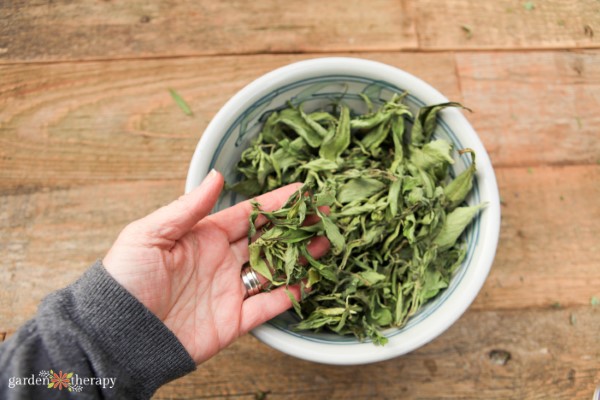
Licorice
(Glycyrrhiza glabra)
Licorice root contains a compound called glycyrrhizin, which is what gives it its sweetness. The herb can aid digestion, making it a lovely addition to after-dinner tea.
Licorice is used for sweets, baked goods, ice cream, soda, and also medicinally.
It’s a detoxifying herb, often used to protect the liver and for its anti-inflammatory properties. The root of the plant is most often used for sweetening, ground into a fine powder. You can place a leaf or use the powder in your tea.
Licorice can be grown in the home garden and even thrives in poor soil. It is hardy in zones 7 to 10, and you can overwinter it in colder climates with heavy mulching.
Aztec Sweet Herb
(Phyla dulcis syn. Lippiadulcis)
Also sometimes called Mayan mint, although this herb is actually a member of the verbena family, Aztec Sweet Herb tastes about 1,000 times sweeter than refined sugar.
All you need to sweeten a cup of tea is one small leaf. Grow it outside in the summer and treat it as a houseplant over winter.
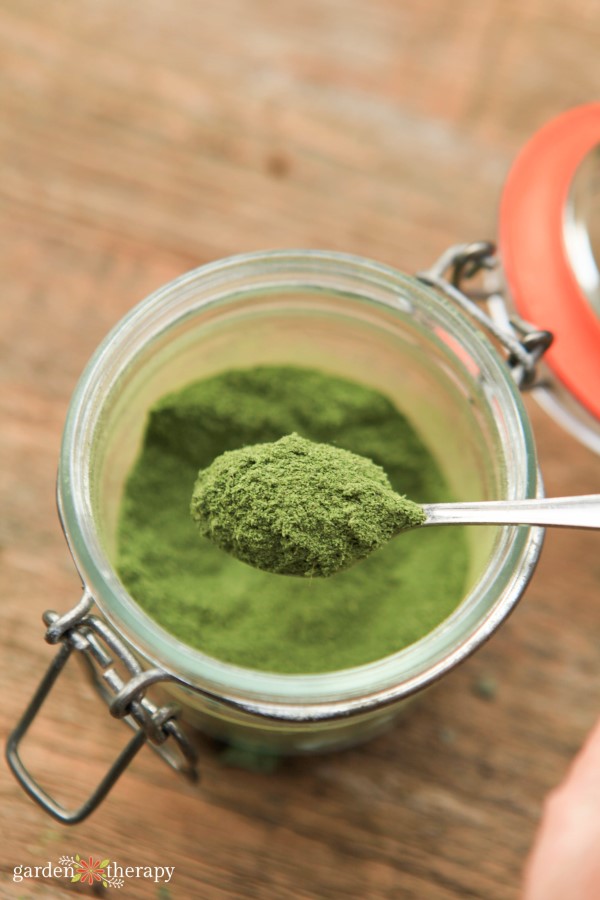
Final Notes on Natural Sweeteners
All of these natural sweeteners will have very different tastes. While I suggest using these in place of refined sugar, I’m not trying to say that these natural sweeteners taste exactly like the refined sugar that we are all so used to.
I don’t like to think of them as replacements for sugar but instead as individual foods that all have specific tastes and all help to satiate sweet cravings.
Find the one that tastes best to you and works how you want it to!

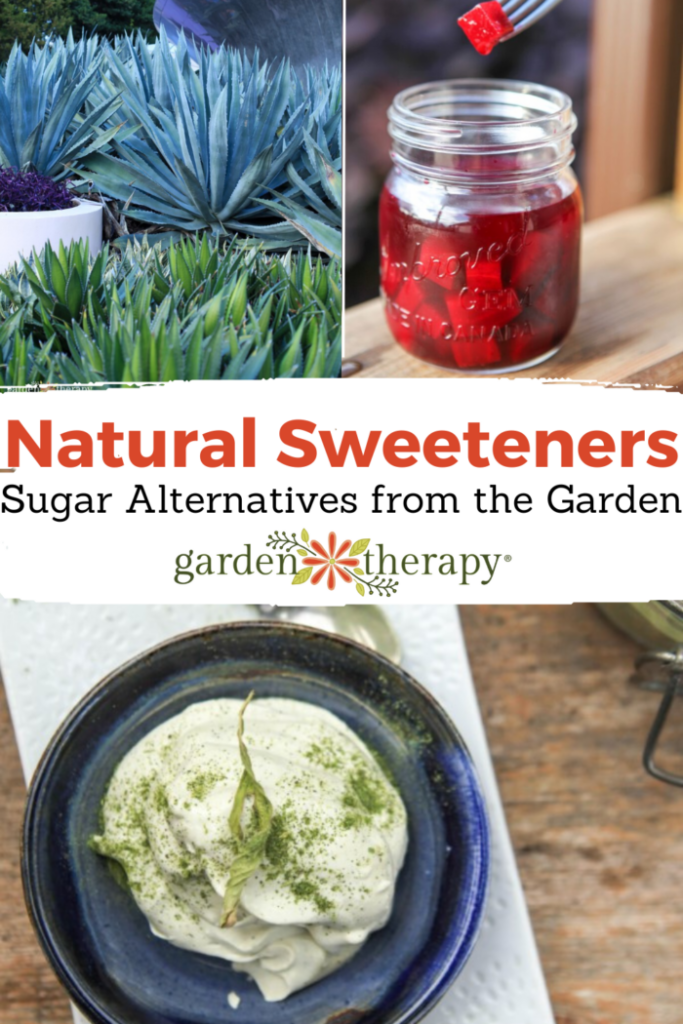
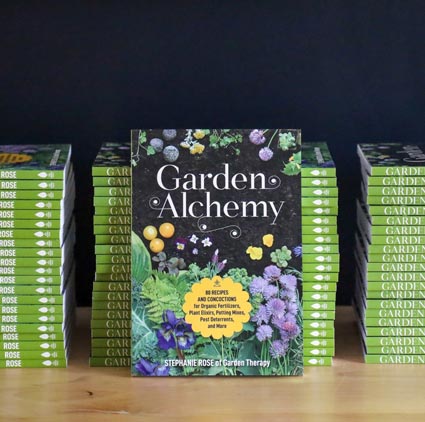
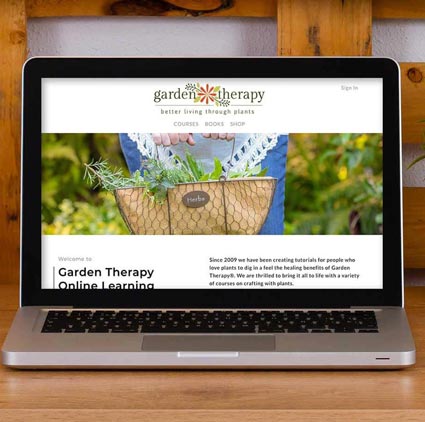

Natural sweeteners are a group of sugar substitutes that are derived from natural sources such as plants, fruits, and herbs. They are often considered a healthier alternative to traditional sugar because they are low in calories and have a lower glycemic index, which means they have less of an impact on blood sugar levels. Some examples of natural sweeteners include stevia, honey, maple syrup, and agave nectar. While natural sweeteners may be a good option for people looking to reduce their sugar intake, it’s important to remember that they are still a form of sugar and should be consumed in moderation.
Stephanie Thank you so much for this post! It’s perfect timing as I’m trying to find replacements for sugar, butter and eggs for a low cholesterol and more natural diet, without having to totally give up my baking!
My pelasure!